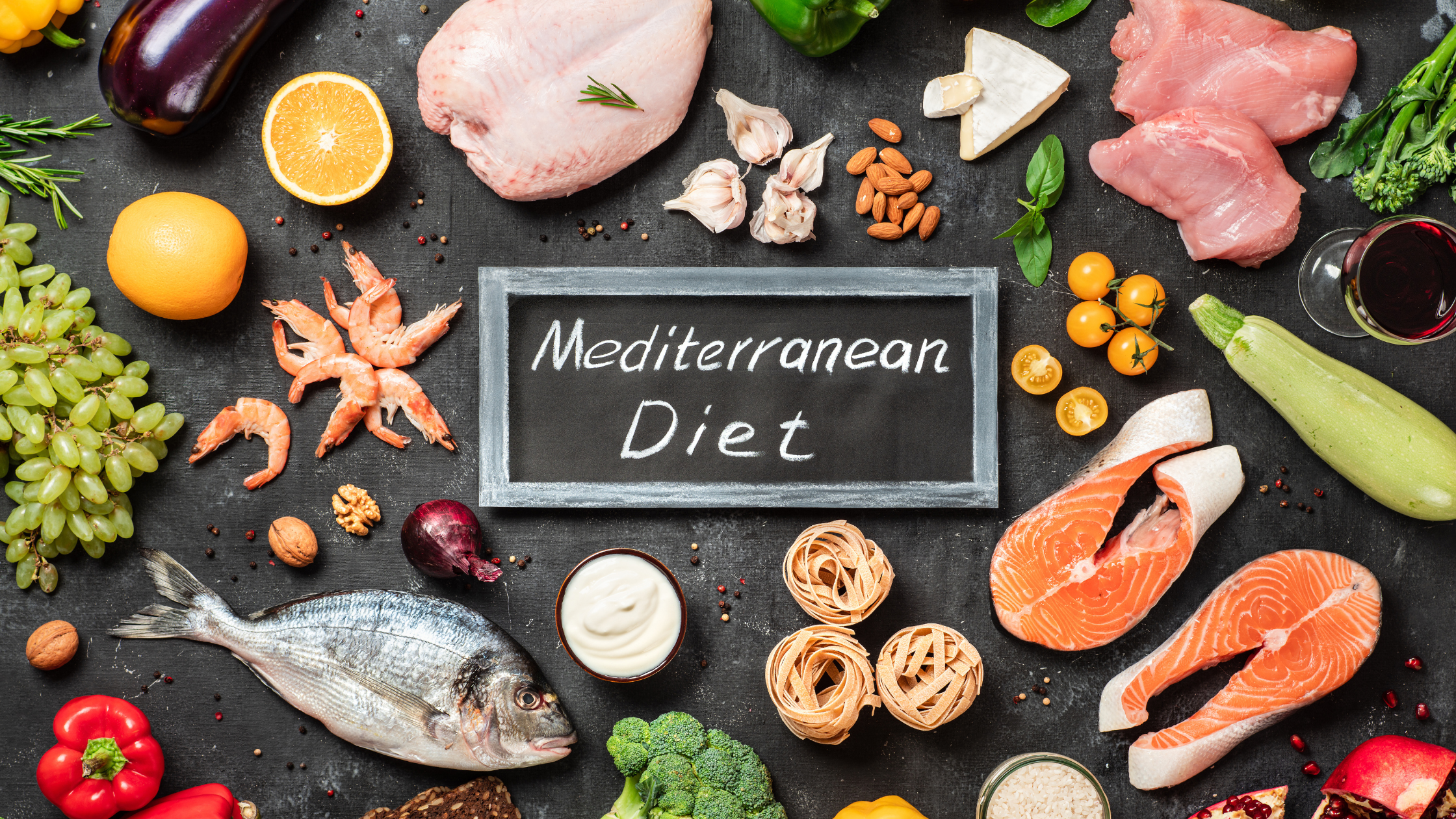Want to Save Money and Eat Healthier? Try the Mediterranean Diet
Written by TYE Medical on Jul 17th 2023
Have you ever thought, “It’s so expensive to eat healthy”? As food costs rise, those discounted hot dogs can be very tempting. More bang for your buck, right? Well, not necessarily, according to new research that says that a healthy Mediterranean-style diet is kinder to your bank account than the usual Western diet.
The study suggested that a Mediterranean-style eating plan would save a family of four about $28 per week on average over a Western diet. The savings totaled about $1,456 per year. The research was conducted in Australia and analyzed the typical “Western” Australian diet, which is very similar to the Western diet in the U.S., which includes high levels of meat, refined carbohydrates, sugar, and sodium with lower levels of produce and whole grains.
Let’s take a closer look at a Mediterranean-style diet and why eating this way won’t break your budget.
Eating Healthier Doesn’t Have to Be Expensive

You don’t have to neglect health to save money on your groceries, according to this research. You can prioritize healthy eating while living on a budget. But most people are deterred from healthier food options because they either assume it’s more expensive, or believe they need to buy the costly, specialized, prepackaged health foods that line certain grocery store shelves.
But the bottom line is that you can eat a Mediterranean diet without all the hype and cost of packaged health foods. Instead, the Mediterranean diet emphasizes whole foods like fresh produce, whole grains (not processed), and healthy fats like nuts and fish.
You might be thinking–”Wait a minute! Nuts and fish are expensive!” But it’s about what you’re spending your budget on. While fish and nuts can be pricier, the balancing factor is that you’re not forking over a lot of cash for processed and packaged food items. Instead of paying up for convenience foods, you’re buying more produce and whole grains that are less pricey in comparison. And these foods are also more filling, which means you’ll eat less in general.
Eating Healthier Doesn’t Have to Be Time Consuming

Your first thought might be, but that sounds like a lot of cooking! But not necessarily. Whole foods are easy to cook and flavor. Sautéing meat and veggies only takes a few minutes. And most whole grains like brown rice and quinoa can be cooked in under 30 minutes. Oven roasting is also a great option.
There is no shortage of easy Mediterranean diet recipes on the internet. You may also find that spending a little time on meal prep over the weekend can save some time, especially if you cut and dice some meat or veggies in advance.
What Is the Mediterranean Diet?
The key feature of eating Mediterranean style is the variety of nutrients it includes. This is largely due to its focus on whole foods, healthy fats, and fresh produce as is traditional in the countries bordering the Mediterranean Sea. Our Western diet often sacrifices nutrition when we opt for processed, convenience foods.
The cited study also indicated nutritional features significantly lacking in the typical Western diet, like fiber, potassium, zinc, calcium, magnesium, vitamin B6, and vitamin E. And the Western diet had double the recommended salt intake compared to the Mediterranean diet.
Key Features of a Mediterranean-Style Diet
Eat mostly (can include daily):
- Vegetables
- Fruits
- Nuts and seeds
- Legumes
- Potatoes
- Whole grains
- Fish and seafood
- Extra virgin olive oil
- Herbs and spices
Eat in moderation (not daily):
- Poultry
- Eggs
- Cheese
- Yogurt
Avoid or limit:
- Red meat
- Sugared beverages
- Added sugars
- Processed meat
- Refined grains
- Highly processed foods
- Beer and liquor
Most people find this eating plan more satisfying and some may naturally consume fewer calories overall.
Health Benefits of Mediterranean Diet

People living in the Mediterranean are overall healthier and have fewer chronic health conditions, and while other factors may be involved, it’s largely believed to be rooted in the region’s dietary habits.
A Mediterranean diet may contribute to a lower risk of:
- Stroke
- Heart disease
- Type II diabetes
A common by-product is weight loss.
Because the diet emphasizes eating healthy fats, it can play an important role in reducing LDL cholesterol levels and inflammation. And since the diet is naturally lower in sodium and processed sugars, it can also decrease the likelihood of obesity and hypertension.
And don’t overlook the benefit of reduced inflammation. It could be the diet’s biggest benefit. Studies have shown that chronic inflammation is a major factor underlying many common diseases like cancer, arthritis, heart disease, bowel diseases, and diabetes.
The large amount of antioxidants and phytonutrients found in the staples of the Mediterranean diet work to fight off inflammation. In contrast, common features of the Western diet actually promote chronic inflammation.
Some studies even suggest that eating Mediterranean style can improve mental health, decreasing depression rates and cognitive decline.
Tips for Saving Money on the Mediterranean Diet

You increase savings on the Mediterranean diet by eating more plant-based. The diet naturally reduces meat consumption, replacing it with beans, lentils, nuts, and low-fat dairy, and whole grains like quinoa which include protein. But you can stretch your budget further by incorporating several plant-based days per week.
Also, adding more vegetables to your meals can also help your budget.
Try having a plant-based night that features beans or lentils in the main course. Then incorporate plenty of vegetables, herbs and spices, to create a memorable meal. You can pump up the protein with some quinoa, brown rice, or farro (not gluten free).
If you’re concerned about wasting fresh vegetables, you can buy some frozen or canned vegetables instead. White you may want to rinse canned veggies to reduce sodium, they still provide high levels of nutrients.
Another great tip is to buy in-season produce, since it is usually more affordable than off-season varieties. Many recipes can be adapted to incorporate different vegetables or fruits.
Eating Plans Similar to the Mediterranean Diet

Another diet that has gained attention recently is the MIND Diet. It’s a combination of the Mediterranean Diet and common diets for hypertension. But the MIND Diet focuses on eating for brain health, which means it combines the best foods for brain health as outlined in these diets. The result is an inflammation-fighting, whole-foods based diet that targets nutrition for optimal brain health.
Another famous cousin of the Mediterranean-style diet is the anti-inflammatory diet. This eating plan amps up the Mediterranean diet so that it is a greater force against inflammation. This means dairy is more restricted or reserved for high-quality portions. And saturated fat in general is very limited. Your main sources of protein are plant-based and include beans, lentils, nuts, and whole grains. This diet provides clearer guidelines that indicate how many times per week a food group is recommended.
Can You Lose Weight on the Mediterranean Diet?

This diet wasn’t specifically designed for weight loss. In fact, it was never “designed” at all but is instead a traditional way of eating among Mediterranean cultures. In a sense, you could say this is a cultural eating plan “borrowed” from southern Europe and adapted as a “diet” in the U.S.
That being said, yes, you can lose weight when you adopt this eating style. But since this isn’t a formal, restrictive, portioned diet, weight loss will determine how closely you follow the general guidelines, portion sizes, and total amount of calories consumed versus burned in a day.
In other words, you can easily adapt this to work as a weight loss plan. But like all weight loss diets, you’ll need to abide limits and restrictions to curb calorie intake.
People have lost similar amounts of weight just following a low-carb diet. But the Mediterranean diet has the advantage of increased nutrition and other health benefits. It’s also highly adaptable and more easily sustained long-term as a way of eating for life.
What Types of Snacks Can You Have?

If you’re following the Mediterranean diet, you’ll want to bypass isles of chips and cookies. Snack time won’t include processed foods with low nutritional value. Instead, you’ll have to rethink the anatomy of your between-meal munching.
Instead of your usual snack foods, you can try whole-food options like:
- a handful of nuts
- mixed berries
- a piece of fruit
- sliced bell peppers with guacamole
- baby carrots with hummus
- hard-boiled egg with salt and pepper
- grapes
- Greek yogurt
- chia pudding
- apple slices with nut butter
- cottage cheese with fresh fruit
But remember that if you’re trying to lose, it’s important to track your snack calories too. Be mindful of portions as you eat nut butters and dairy. The calories can add up quickly if you’re not careful.
Key Ideas About the Mediterranean Diet

Eating the traditional Mediterranean way has become the eating plan by which all other plans are measured. It’s a food lifestyle that incorporates variety, nutrition-packed whole foods, and plenty of produce. All the while it avoids the snares of processed food, sugars, and sodium. Produce and heart-healthy whole grains are staples.
Doctors commonly recommend the Mediterranean diet to their patients with heart or cholesterol conditions. But it’s often touted as a beneficial diet for anyone who wants to maintain nutrition and health. And because it’s highly flexible, you can modify it to suit dietary needs and preferences.
Most surprising of all is that it’s also more affordable than our traditional Western diet. If you cut out all the price, processed, convenience foods, and focus on the diet’s key guidelines, you’ll find you’re actually banking money rather than spending more.


